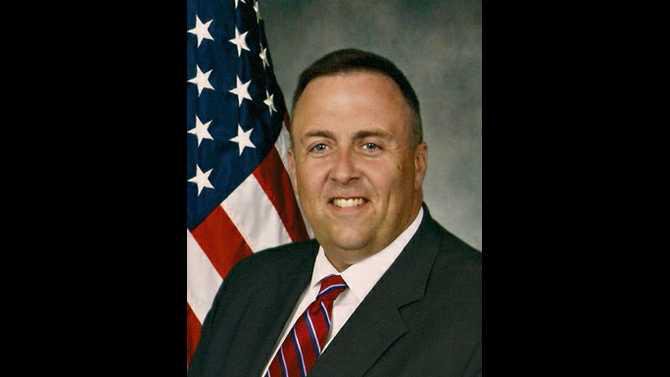COVINGTON, Ga. – What does the coroner do? What does the elected position entail? The Covington News posed these questions to Newton County Coroner Tommy Davis in an effort to help clarify the position for the community.
Davis’ answers will be featured in The News as a quarterly series. If you have any questions you would like to have answered about the coroner’s office, please email them to news@covnews.com and they could be included in the next edition of this series.
The News: What qualifications are required for a coroner?
Davis: The law requires anyone running for the office of coroner to be a citizen of the United States, a resident of the county for two years, a registered voter, they must be 25 years old prior to the general primary election, have a high school diploma or its equivalent and have not been convicted of a felony or any offense of moral turpitude. These are the simple requirements when seeking most elected offices in the State of Georgia including the offices of Superior Court Clerk, Tax Commissioner and other elected offices.
The News: How many people are included in the Coroner’s staff?
Davis: Our coroner’s office is staffed by myself, as the elected coroner, and two deputy coroners. I have been with the coroner’s office first as a deputy coroner in 2003 and then when Coroner Bob Wheeler retired I was first elected in 2008 and again in 2012 and 2016. The deputy coroners are Steve Jones, who has been with the office for six years, and Dr. Michael Grady, who has been with the office for over a year. Both of these gentlemen bring a wealth of knowledge to the office and are valuable assets to all of Newton County. Deputy Coroner Jones is also a Battalion Chief for the City of Covington Fire Department where he has worked for 30 years and has been a certified Paramedic for 20 years. Deputy Coroner Grady is a retired physician who has served our community for more than 30 years. I, myself, have been with the coroner’s office for 14 years and have also been in the funeral business for 33 years.
The News: If someone is involved in an incident locally, transported to an out-of-county hospital or care center and later dies, does your office still work the case?
Davis: Yes. The state law brings the investigation back to the county where the incident occurred. For instance, if a traffic crash results in an occupant needing to be transferred to a trauma center in Atlanta and dies after they arrive there, the investigation would return to Newton County and be investigated by our office along with the law enforcement agency such as Newton County Sheriff’s Office, Covington Police Department or Georgia State Patrol as is the case with most serious injury accidents. The same would occur for any person that transferred for any reason to any hospital or like facility. Also, there is no time frame on this type of death either. If a person dies years later from an incident that occurred here in Newton County the investigation would come back to our office.
The News: Is the Newton County Coroner put in charge of all of the deaths in the county, including those that take place in local hospitals or care centers?
Davis: No. The coroner’s office opens investigations in to only about 30 to 35 percent of all death that happen here. There are typically a little more than 700 or so death certificates issued in Newton County every year and only 230 to 250 of those meet the criteria that requires the coroner’s office to get involved. The Georgia Death Investigation Act (O.C.G.A. 45-16-20) requires that the coroner or county medical examiner of the county where the body is found or the death occurs be notified and that a medical examiner's inquiry be made in all deaths that occur in this state that meets the following criteria:
1. As a result of violence;
2. By suicide or casualty;
3. Suddenly when in apparent good health;
4. When unattended by a physician; no person shall be deemed to have died unattended when the death occurred while the person was a patient of a hospice licensed under Article 9 of Chapter 7 of Title 31 of the Georgia Code.
5. In any suspicious or unusual manner, with particular attention to those persons 16 years of age and under;
6. After birth but before seven years of age if the death is unexpected or unexplained;
7. As a result of an execution carried out pursuant to the imposition of the death penalty under Article 2 of Chapter 10 of Title 17;
8. When an inmate of a state hospital or a state, county, or city penal institution; or
9. After having been admitted to a hospital in an unconscious state and without regaining consciousness within 24 hours of admission.





